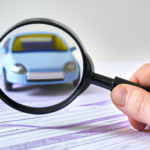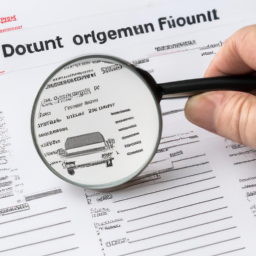Get ready to dive into a trove of valuable information as you get set to unlock the past of your potential vehicle. In the article “Unlocking the Past: How to Find a vehicle history report,” you will learn step by step how to lay bare the history of a car, from its manufacturing date to its maintenance record. Avoid the pitfalls of purchasing a car with hidden faults and complicated pasts with this easy-to-follow guide. Why leave it to chance when you can take the wheel and discover everything there is to know about your future ride?
Understanding The Importance of a Vehicle History Report
When buying a used vehicle, it’s crucial to understand the importance of a vehicle history report. This report gives you insight into a vehicle’s past, providing crucial information that can influence your buying decision.
What is a vehicle history report?
A vehicle history report, or VHR, is a document that provides detailed information about a vehicle’s past. This includes details like the number of previous owners, accident history, title issues, mileage validation, and more. It’s an essential part of the used car buying process, acting as a vehicle’s “background check.”
Why should you get a vehicle history report?
Before buying a used car, you need as much information as possible about the vehicle’s history. A vehicle history report allows you to make an informed decision – you’re not simply taking the seller’s word about the car’s condition. It can help you avoid buying a vehicle that has been in serious accidents, suffered extensive damage, or has title issues.
What details can you expect from a vehicle history report?
A vehicle history report typically includes:
- Vehicle identification number (VIN)
- Make, model, and year of manufacturing
- Ownership history
- Odometer readings
- Accident history
- Title history
- Lien status
- Maintenance history
Sources for Obtaining a Vehicle History Report
There are several ways to obtain a vehicle history report.
Vehicle history report service providers
Companies such as AutoCheck or Carfax provide comprehensive vehicle history reports that could be ordered online. You would need to provide the Vehicle Identification Number (VIN) to generate the report.
National Motor Vehicle Title Information System (NMVTIS)
The National Motor Vehicle Title Information System (NMVTIS) is a database managed by the federal Department of Justice that houses information about a vehicle’s title, odometer data, and damage history. Reports from NMVTIS are comparatively less detailed but cheaper.
Car dealerships
Used car dealerships often provide customers with a complimentary vehicle history report for the vehicles they are interested in.
The Process of Getting a Vehicle History Report
Getting a vehicle history report is a straightforward process.
Identification of vehicle details
The Vehicle Identification Number (VIN) is needed to generate a report. It is usually located on the driver’s side dashboard or inside the driver’s side door.
Contacting the appropriate service provider
Once you have the VIN, you can approach a service provider. This could be an online service provider, NMVTIS, or a car dealership.
Submission of necessary details
After providing the VIN, the service provider generally asks for additional information like your contact details and, once you agree to their terms of service, the report is generated.
Reading and Understanding a Vehicle History Report
Once you obtain a vehicle history report, it’s important to know how to read and interpret it.
Understanding the report structure
Although the structure of vehicle history reports can vary slightly from one provider to another, most contain sections devoted to title history, accident history, ownership history, and detailed records.
Decipher the terminologies used
Familiarizing yourself with the terms used in vehicle history reports ensures that you understand the information provided. For example, a “salvage title” refers to a vehicle that has been declared a total loss by an insurance company due to severe damage.
Reading the accident history
This section details any accidents the vehicle was involved in. It may include the date of the accident, the severity of the damage, and where it was reported.
Evaluating the title history
Title history is a vital section to review, as it indicates the legal status of the vehicle. It can reveal if the vehicle was ever deemed a total loss, rebuilt after major damage, or salvaged.
Understanding the lien and ownership information
The lien information tells you if the car has any unpaid loans associated with it. Ownership information, on the other hand, includes the number of previous owners, how long they owned the vehicle, and in what regions the vehicle was registered.
Dealing with Inconsistencies or Discrepancies in Vehicle History Reports
Sometimes vehicle history reports may contain inconsistencies or discrepancies.
Identifying discrepancies
Discrepancies may include things like mismatched mileage readings or unreported accidents. Carefully reading the report allows you to identify such issues.
Investigating the discrepancy
If you come across any discrepancy, investigate further. You may require additional information from the seller or employ a trusted mechanic to examine the vehicle.
How to address or rectify detected inconsistencies
If a discrepancy is confirmed, contact the seller to address the issue. If it is not adequately resolved, consider walking away from the deal, as this could be a red flag.
Sample Vehicle History Reports and Case Studies
You can find mockup vehicle history reports online to familiarize yourself with the format and type of information provided. Actual case studies are also beneficial, as they provide real-world examples and often explain potential pitfalls when purchasing used vehicles.
Understanding the Cost of a Vehicle History Report
Vehicle history reports are generally affordable, but you should understand what you are paying for.
Price range for vehicle history reports
While prices can vary, on average, a report may cost between $25 and $40. Some providers offer package deals for multiple reports.
Factors affecting the cost of the report
The amount of information provided and the currency of the data may affect the cost. Reports generated using NMVTIS data tend to be cheaper but may not be as comprehensive.
Legal Aspects of Vehicle History Reports
Understanding the legal aspects can protect your interests when buying a used vehicle.
Laws and regulations concerning vehicle history reports
In the United States, the Federal Trade Commission oversees used car transactions, and any misrepresentation or omission of information can have serious legal implications.
Privacy issues
Vehicle history reports should only contain vehicle history information and not personal details about previous owners, in compliance with privacy laws.
Liability issues
Liability issues can arise if the vehicle’s history report reveals undisclosed problems after purchase.
The Role of Vehicle History Reports in Purchasing Pre-owned Vehicles
Vehicle history reports play a crucial role in purchasing pre-owned vehicles. They provide transparency, giving potential buyers confidence in their decision. A vehicle history report influences the decision to purchase a pre-owned vehicle largely by highlighting potential problems and ensuring a fair price based on the vehicle’s history.
Tips and Tricks in Getting the Most out of Your Vehicle History Report
Verification of information
Confirm the information provided in the report, particularly crucial details like accident history and title status.
Getting a mechanic’s perspective
Having a mechanic inspect the vehicle gives you an unbiased opinion, which can validate the vehicle history report or reveal hidden issues.
Comparing reports from different providers
Getting reports from different providers can help, as some providers may have exclusive information not available elsewhere.
In conclusion, a vehicle history report is an essential tool in the used vehicle buying process. It provides transparency, reveals potential issues, ensures fair pricing, and ultimately, gives you peace of mind. Happy car shopping!









